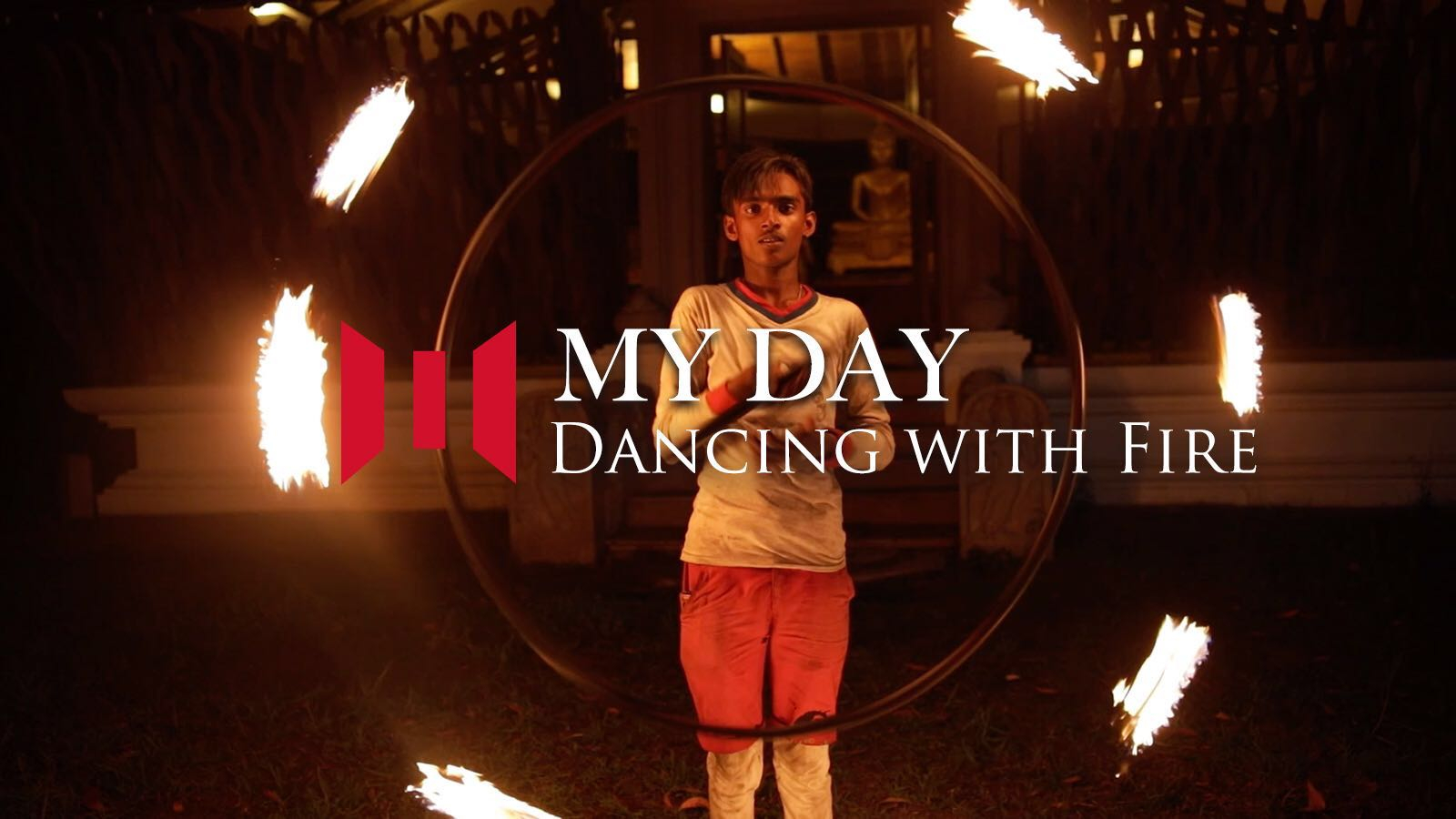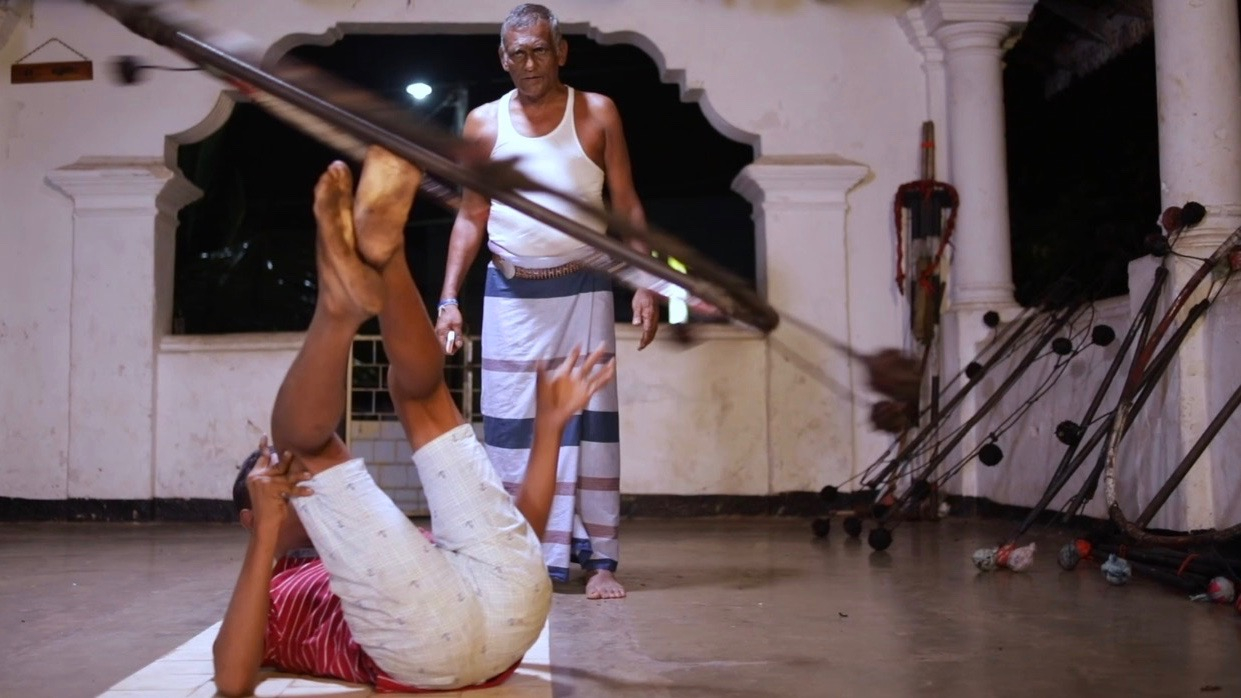
Art
20:32, 09-May-2019
Dancing with fire in Sri Lanka
By Wang Xiaonan
03:52

The
worst attack since the end of the country's 27-year civil war
shocked Sri Lanka – known as the pearl of the Indian Ocean – on
Easter Sunday. The series of coordinated bomb blasts in churches and
hotels left over 300 people dead and hundreds more injured.
However
tragic the incident, Sri Lankans have demonstrated the fortitude to
weather such grief and anger, given their turbulent history, which
dates backs to the sixth century B.C. Warfare, turmoil and poverty
have failed to wipe the optimism from the people living on what
13th-century explorer Marco Polo christened as the “the finest
island of its size in the world.”
Among
its sumptuous cultural relics, "Pandam Paliya" – the
country's traditional dance – stands out as a repertoire in
almost all pageants. One of the must-see performances, the fire dance
was originally designed to drive darkness out of the night, to scare
away fear, anxiety and ailments brought about by “evil spirits.”

Thilakarathana teaches a young child to perform the fireball dance.
Thilakarathana teaches a young child to perform the fireball dance.
The
fireball dancers continue to captivate tourists given the
performance's risk as well as beauty. After all, it is playing with
fire. “Even though fire is dangerous, young kids have innate
abilities to handle it,” said Ilandari Thilakarathana from
Peliyagoda. Born in 1953, he is a professional fireball dancer who
has received presidential awards every year since 1978. He now trains
young people to inherit this tradition, allowing the next generation
to support themselves with the art.
Infusing
the fire dance with his own style, Thilakarathana ultimately created
a unique choreography by incorporating Angampora, a kind of ancient
Sri Lankan martial arts.
In Sri Lanka, playing with fire is deemed
an essential way to foster patience, perseverance and courage to tide
over ordeals. Although dangerous, experimenting with fire has also
allowed humans to tame nature and form civilizations. Greek
philosopher Heraclitus described the entire cosmos as “an
ever-living fire.”
For Thilakarathana and his apprentices, playing
with fire reinforces their faith in them and refining their dancing
is a life-long pursuit.

SITEMAP
Copyright © 2018 CGTN. Beijing ICP prepared NO.16065310-3
Copyright © 2018 CGTN. Beijing ICP prepared NO.16065310-3